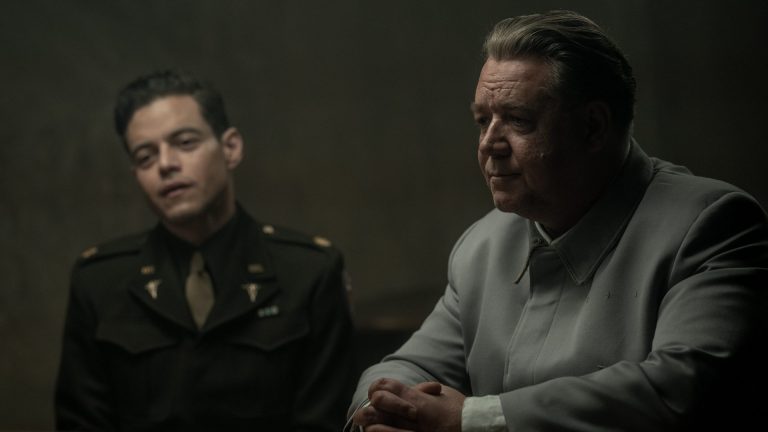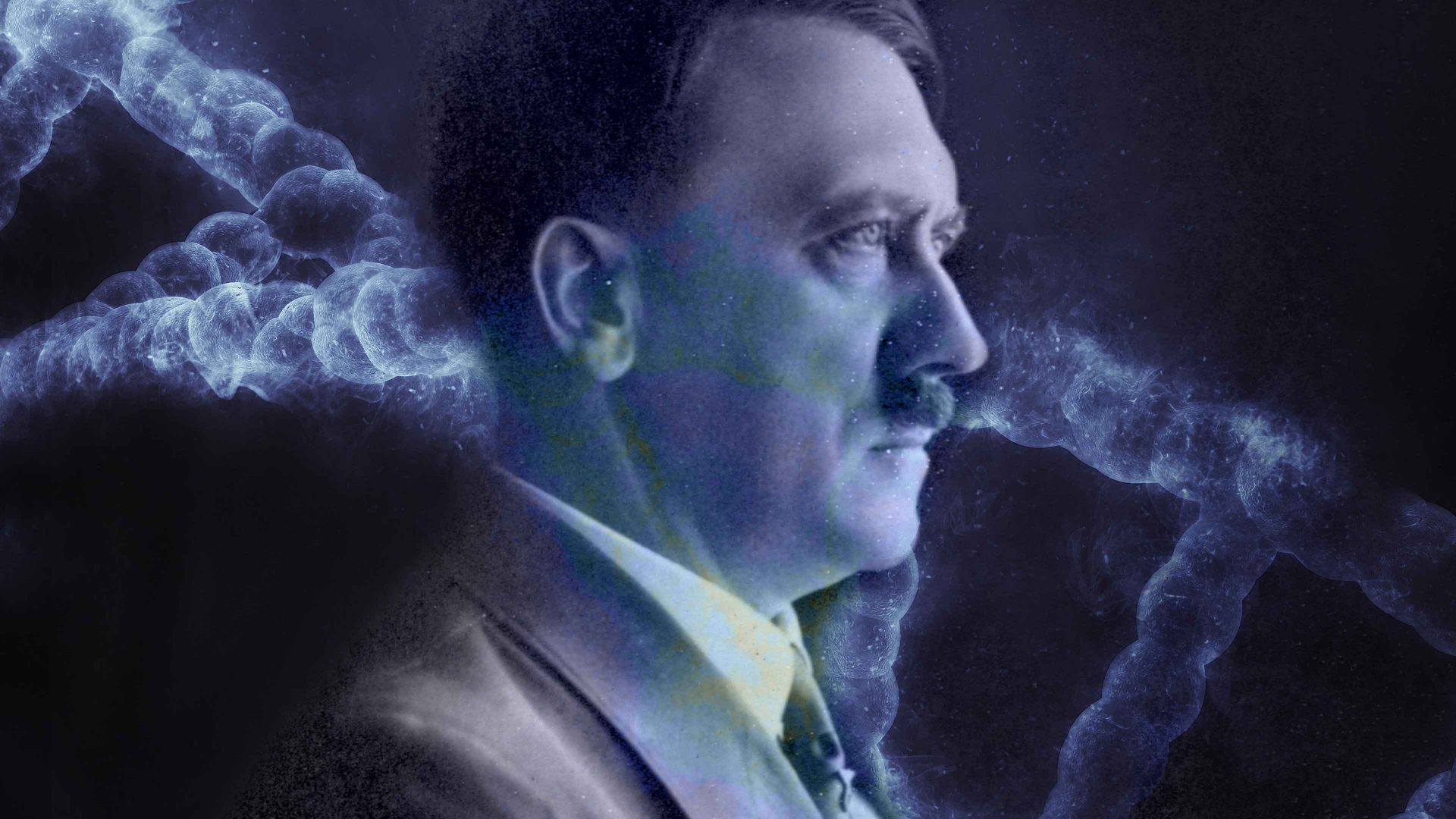PICK OF THE WEEK
Wes Anderson: The Archives (Design Museum, London, until July 26)
When Wes Anderson wrapped his first feature film, Bottle Rocket (1996), starring his lifelong collaborators Owen and Luke Wilson, he was dismayed that all the props and costumes belonged to Columbia and were taken away by the studio. Ever since, the director has kept everything, now stored in a warehouse in Kent (where he also has a home).
It is thanks to his passionate hoarding that the Design Museum has been able to host this wonderful exhibition, transferred from the Cinémathèque Française in Paris and expanded to include more than 700 costumes, books, pictures, models, stop-motion puppets and other movie artefacts.
Expertly curated by Johanna Agerman Ross and Lucia Savi, Wes Anderson: The Archives showcases his love of detail as much as his talent for the grandiose: so we have not only the Proustian madeleines of the school badge worn by Max Fischer (Jason Schwartzman) in Rushmore (1998) and the canine identity tags from Isle of Dogs (2018) but also the spectacular model of the Grand Budapest Hotel from the eponymous 2014 movie and the monumental series of “Ten Reinforced Cement Aggregate Load-Bearing Murals” by the imprisoned artist Moses Rosenthaler (Benicio del Toro) from The French Dispatch (2021).
In an interview in the exhibition catalogue, set photographer James Hamilton – who was also the voice of Mole in Fantastic Mr Fox (2009) – remarks that, like Stanley Kubrick, “Wes has engineered his career to be in full command of all his materials, including the final cut.” This is more than the controlling spirit of the auteur. Anderson takes delight in minute details that will barely be seen by the audience but complete the universe in which he sets his stories: fictional books, exquisitely written notes, portraits on a wall, handbills.
It is true that he has a distinctive, often symmetrical aesthetic and pays rigorous attention to palette: bright red in The Royal Tenenbaums (2001) and faded pastels in Asteroid City (2021). But it is a mistake to see this as quaint or limiting. The world of Anderson’s movies aligns with Umberto Eco’s definition of hyperreality: “a fantasy world more real than reality.”
There is, of course, glee in the attention to detail: the vinyl sleeve of Chansons d’Ennui, the album by Tip-Top (Jarvis Cocker) produced to coincide with The French Dispatch; the Khaki Scouts rucksack carried by Sam Shakusky (Jared Gilman) in Moonrise Kingdom (2012); the fur coat designed by Fendi for Margot Tenenbaum (Gwyneth Paltrow).
But there is also high seriousness in Anderson’s movies: mythic themes of loss, redemption, destiny and love. The care that he lavishes upon his visual idiom reflects the scale of his moral ambition as a storyteller.
As Max says in Rushmore: “The secret? I think you just gotta find something you love to do, and do it for the rest of your life.” Not all cinema is, or has to be, art. But Wes Anderson’s most certainly is.
FILM
Wake Up Dead Man: A Knives Out Mystery (Selected cinemas, November 26; Netflix, December 12)
Rian Johnson’s third movie featuring ace detective Benoit Blanc (Daniel Craig) is also the best so far. The original Knives Out (2019) was set on a lavish Massachusetts estate, while Glass Onion (2022) took the sleuth from the South to the private Greek island of a tech billionaire.
This time, Blanc must solve a murder mystery in the leafy village of Chimney Rock in upstate New York, a gothic milieu with accents of MR James and Edgar Allen Poe as much as of Agatha Christie and Dorothy L Sayers. Josh O’Connor is terrific as Father Jud Duplenticy, a young boxer turned priest who has been sent to Our Lady of Perpetual Grace to mend his ways after thumping an annoying deacon.
The church is overseen with menacing charisma by Monsignor Jefferson Wicks (Josh Brolin, having the time of his life), who manipulates his inner circle of congregants like a cult leader rather than a saver of souls. Among them is town doctor Nat Sharp (Jeremy Renner, in his first feature film role since his near-fatal snowplough accident two years ago); Lee Ross (Andrew Scott), a sci-fi writer on the slide; Simone Vivane (Cailee Spaeny), a concert cellist seeking a miracle cure for a neurological disorder; and lawyer Vera Draven (Kerry Washington). Daryl McCormack is hilarious as Vera’s adopted son Cy, a failed politician who makes endless YouTube videos (“This is my last-chance ticket out of Substack hell!); while Glenn Close excels as the veteran chatelaine of the church, Martha Delacroix.
When Wicks is murdered in a sealed closet after delivering his Good Friday sermon – there are explicit references to John Dickson Carr’s classic “locked room” mystery The Hollow Man (1935) – Duplenticy joins forces with Blanc to crack the case. At which point, Wake Up Dead Man becomes, in effect, an ecclesiastical buddy movie with Blanc as the atheist, who regards religion as “a perfidious bubble of belief” alongside his ordained sidekick, struggling to find meaning in faith.
Woven into the whodunnit are the themes of autocracy, salvation and even resurrection. But there is also, as police chief Geraldine Scott (Mila Kunis) observes, plenty of “Scooby Doo shit” to ensure that the spirit of high camp entertainment never flags.
Suggested Reading


The urgent and dramatic power of Nuremberg
THEATRE
All My Sons (Wyndham’s Theatre, London, until March 7)
In his memoir Timebends (1987), Arthur Miller wrote that All My Sons, which opened on Broadway in January 1947, was a play about “the return of the repressed”.
From the first strains of Vivaldi’s Winter, Ivo Van Hove’s fine production strikes an elegiac tone. On a Sunday morning in suburban Ohio, Joe Keller (Bryan Cranston) and his wife Kate (Marianne Jean-Baptiste) behold in their garden a newly fallen tree that commemorates their son Larry, a pilot missing in action for three years. The symbolism of its toppling is ominous, too sharp to be addressed directly.
Their younger son Chris (Paapa Essiedu) hopes to marry Larry’s onetime girlfriend Ann Deever (Hayley Squires). For his mother, in particular, this prospect is intolerable because it requires her to confront the reality of her elder son’s death.
She resorts to astrology to convince herself that he may yet return, a pattern of denial that especially exasperates Chris. “We never took up our lives again,” he says. “We’re like at a railroad station waiting for a train that never comes in”.
Joe, meanwhile, lives under the shadow of a wartime scandal in which he was charged with knowingly allowing a batch of faulty cylinder heads to be supplied to the Army Air Force – criminal negligence that led to the crash of 21 Curtiss P-40 fighters in Australia. Though initially shunned – “I was the beast” – he managed to secure exoneration. His partner, Steve Deever – Ann’s father – was not so lucky and still languishes in prison.
For Kate, her husband’s notional innocence is the foundation stone of the temple of delusion that she has constructed. “Your brother’s alive, darling,” she says to Chris, “because if he’s dead, your father killed him. Do you understand me now? As long as you live, that boy is alive.”
Stifled parental grief mingles with generational tension. For Joe, scarred by the Depression, the patriarch’s primary duty is always to keep indigence at bay. He is suspicious of the rising intellectualism he sees around him. “I don’t know, everybody’s gettin’ so goddam educated in this country there’ll be nobody to take away the garbage,” he says. “It’s gettin’ so the only dumb ones left are the bosses”.
Parallel to this is his younger son’s recoil from the emerging powerhouse of postwar American capitalism: “This is the land of the great big dogs, you don’t love a man here, you eat him!” Desperately, Joe makes the case for practicality and pragmatism: “a man can’t be a Jesus in this world!”
In this rationalisation of his past conduct, though, Joe has sacrificed his sense of social solidarity. As Miller remarked, he “is not a partner in society, but an incorporated member, so to speak”.
His play, he wrote, was written in “the Greco-Ibsen form”, combining classical tragedy with the Norwegian writer’s fascination with time and its operations. Cranston and Jean-Baptiste lead a uniformly excellent cast in a production that, true to Miller’s ambition, captures universal predicaments in a vividly historical context.
STREAMING
The Beast in Me (Netflix)
Claire Danes is such a good actor that, when her co-star Damian Lewis left HBO’s Homeland after three seasons, she was able to carry on solo as CIA officer Carrie Mathison for a further five – if anything, making the show more of a must-see.
This eight-part psychological thriller, co-created by Gabe Rotter and Howard Gordon, is greatly enhanced by the performance of Matthew Rhys as Nile Jarvis, a real estate tycoon widely suspected of killing his first wife Madison (Leila George). But it is Danes as Pulitzer Prize-winning author Agatha “Aggie” Wiggs, living alone in a huge house in Oyster Bay, New York, who compels the viewer to keep watching.
Four years before the drama begins, Aggie and her now ex-wife Shelley (Natalie Morales) lost their son Cooper (Leonard Gerome) in a car crash – for which Aggie blames Teddy Fenig (Bubba Weiler), a young man who still lives nearby and who, she believes, was drunk at the wheel.
When Nile and his second wife Nina (Brittany Snow) move in next door, their guard dogs disturb Aggie, who is also annoyed by her new neighbour’s presumption in proposing that he build a jogging track in the upscale community’s communal woodland. Their initial exchanges are acrimonious. But Nile’s inexhaustible swagger – is it charm or psychosis? – piques her authorial interest.
Over lunch she admits that, having written a best-selling account of her dysfunctional relationship with her father called Sick Puppy, she is now getting nowhere with a follow-up book about the improbable friendship between supreme court judges Ruth Bader Ginsburg and Antonin Scalia. Nile spots immediately that she is not stuck but bored – and that readers will be too. “No one wants hope,” he says with relish. “They want gossip and carnage. If you want another bestseller, you should write about me.”
He has read her well: Aggie would indeed much rather write a 21st-century In Cold Blood than a worthy account of communication across the ideological divide. She also wants to find out if Nile is guilty. He claims that they share a “bloodlust”. Hers is metaphorical. But is his?
In Manhattan, Nile and his menacing father Martin (Jonathan Banks, brilliant as always) are working on a colossal construction project, Jarvis Yards: a scheme that is powerfully opposed by ambitious councilwoman Olivia Benitez (Aleyse Shannon).
Meanwhile, rogue FBI agent Brian Abbott (David Lyons) contacts Aggie, urging her to cut ties with Nile; and Teddy goes missing, leaving a suicide note that makes no sense to those who know him.Aggie’s pas de deux with Nile owes a clear debt to The Jinx (Now TV), Andrew Jarecki’s two-season true crime series about the late New York real estate heir, Robert Durst. Danes has also cited the influence of Janet Malcolm’s classic The Journalist and the Murderer (1990). But The Beast in Me wears its ethical themes lightly; this is a splendidly bingeable exercise in old-school suspense, ideal for winter evenings.




